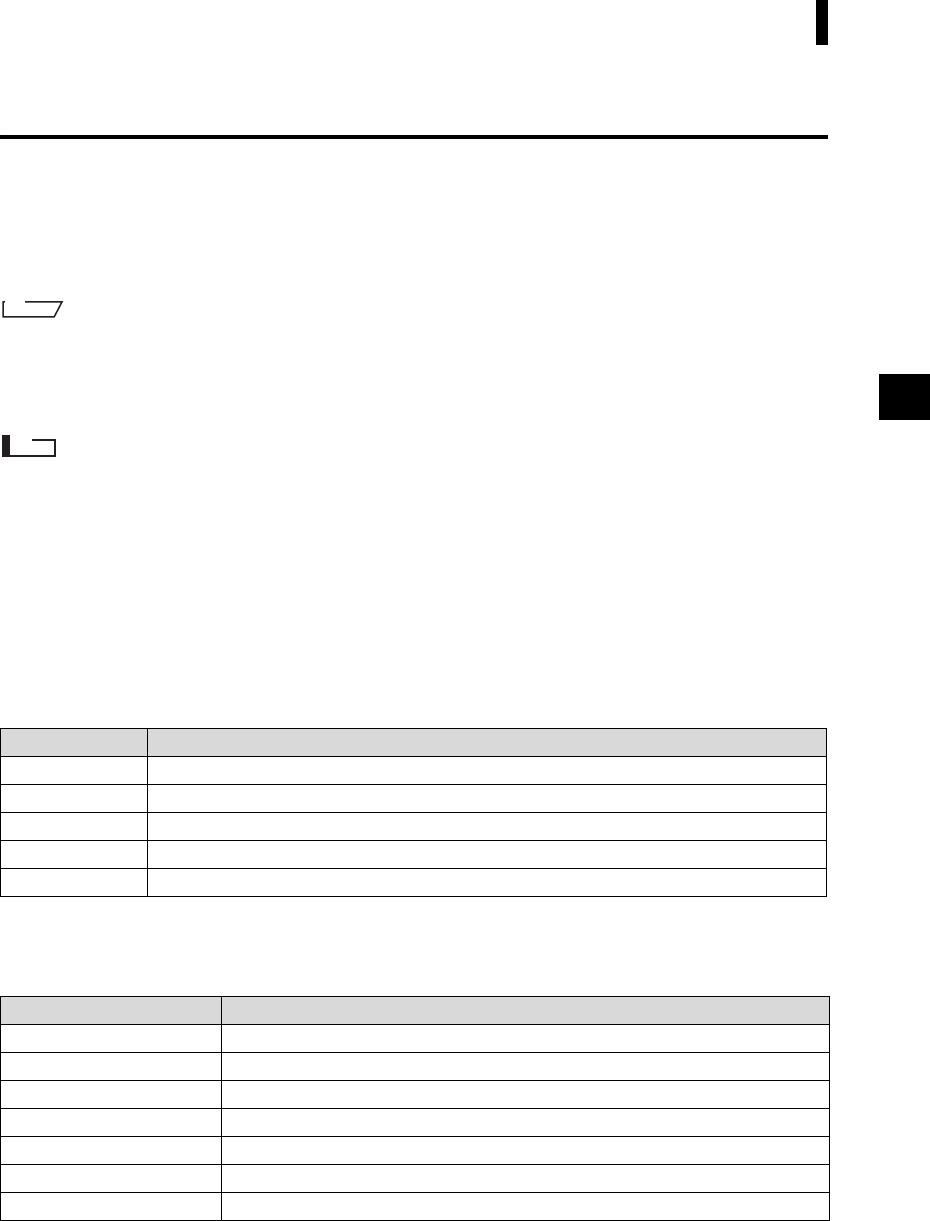
E-93
Connecting to an External Device
Outputting to a Printer
Connecting the instrument to a printer with a printer cable allows printing the measured data or the color
difference target data stored in the instrument’s memory. Two printing methods are available. One is to
print automatically each time measurement is taken (this is called “Auto Print”; measured data only), and
the other is to print the currently displayed measured data, pass/fail results and color difference target
data.
M
emo
If “SPECT.GRAPH” is selected as the display mode, the spectral reflectance data of displayed data in each screen;
the measured data in the measured data screen or the color difference target data in the <TARGET> screen, will be
printed. If “COLOR GRAPH” is selected, the color difference and absolute data will be printed. If “PASS/FAIL” is
selected, either “PASS” (or “FAIL”) or the color difference and absolute data will be printed.
Note
• When connecting the connectors, make sure that they are correctly oriented and fastened securely with screws.
• Before connecting, make sure that the power to both the instrument and printer is turned OFF.
• When disconnecting the cable, be sure to grip the plug or connector and pull it. Do not pull on or forcibly bend
the cable.
• Do not touch the connector terminals with your hands, allow them to get dirty or apply excessive force to them.
• Make sure that the cable has a sufficient amount of slack. Pulling the cable taut may cause connection failure
or wire breakage.
• The instrument and printer must be connected using a printer cable that is wired as shown in “Printer Cable
Wiring Diagram” (page E-92).
Communication Parameters
Item Setting
Baud rate 9600 bps
Character bits 8 bits
Parity None
Stop bits 1 bit
Flow control RTS/CTS
Applicable Printers: DPU-H245AS-A03 *serial connection/metric screw type (Seiko Instruments
Inc.)
In addition to the above printer, printers that meet the following specifications can be used.
Item Specifications
Number of print lines 27 or more lines, Data input: RS-232C
Data control BUSY
Baud rate 9600
Character bits 8 bits
Parity None
Stop bits 1 bit
Basic function CR (0DH) carriage return


















